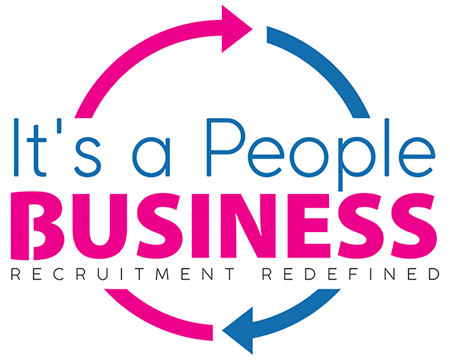
In recent years, Diversity, Equity, and Inclusion (DEI) have become buzzwords in the world of business and hiring. The push for companies to increase diversity and create more equitable and inclusive workplaces has led to a variety of strategies and approaches. One approach that has gained traction in recent years is skill-based hiring. This approach involves focusing on an applicant's skills and abilities, rather than their background or demographics. By prioritizing skills, companies can create more diverse and inclusive workplaces while also benefiting their bottom line.
Read More: The Future of Work: Predictions for Online Recruitment in the Next Decade
Skill-based hiring is a powerful tool for promoting diversity, equity, and inclusion in the workplace
In this blog post, we will explore the benefits of skill-based hiring for DEI. We will examine how this approach can help companies overcome biases and create more diverse teams. We will also discuss the benefits of a more diverse and inclusive workforce, including increased innovation and creativity, improved customer service, and better financial performance. Finally, we will provide practical tips for companies looking to implement skill-based hiring practices in their own recruitment processes. By the end of this post, readers will have a comprehensive understanding of why skill-based hiring is a powerful tool for promoting diversity, equity, and inclusion in the workplace, and how to incorporate it into their hiring practices. With a more diverse and inclusive workforce, companies can benefit from a broader range of perspectives and ideas, increased productivity, and improved employee morale. By focusing on skills and qualifications rather than traditional hiring criteria, companies can attract a more diverse pool of candidates, and ultimately build a stronger, more resilient team.
1. Increases diversity and inclusion efforts.
1. Increases diversity and inclusion efforts.
In fostering a truly diverse and inclusive workplace, the adoption of inclusive hiring practices emerges as an imperative. Skill-based hiring presents itself as a potent tool for enhancing diversity, equity, and inclusion (DEI) within your organization. This approach facilitates a more impartial assessment of candidates, grounded in their competencies and potential, rather than their backgrounds or demographic attributes. By directing attention towards skills and potential, skill-based hiring effectively mitigates the influence of unconscious biases in the selection process, leading to the cultivation of a broader and more varied pool of candidates and, consequently, a more diversified workforce.
Break down barriers to entry for marginalized groups and promote a culture of inclusivity.
This strategy serves as a means to dismantle the obstacles that marginalized groups face in gaining entry into organizations, and it nurtures a culture of inclusivity that celebrates diverse viewpoints and experiences. In the grander scheme, skill-based hiring serves to fortify DEI initiatives, boost employee morale, and yield positive ramifications for your organization's bottom line.
Read More: Mastering the Main Stages of Any Recruitment Discussion: A Practical Guide for Employers
2. Focuses on job-related skills.
2. Focuses on job-related skills.

In the pursuit of advancing Diversity, Equity, and Inclusion (DEI) within the workplace, the significance of inclusive hiring practices, specifically those centred on skill-based hiring, has grown immensely. Skill-based hiring offers a pivotal advantage by emphasizing job-related proficiencies, prioritizing candidates based on their ability to excel in specific roles, irrespective of personal backgrounds or identities. This skill-centric approach serves as a potent antidote to inadvertent biases that may stem from factors such as a candidate's name, ethnicity, or gender.
Candidates who possess the necessary skills are more likely to succeed and be satisfied in their roles.
Consequently, skill-based hiring becomes a catalyst for companies to not only attract but also retain a diverse workforce, thereby fostering a more inclusive and innovative workplace culture. Moreover, these practices can contribute to a reduction in turnover rates since candidates possessing the requisite skills are more likely to succeed and find satisfaction in their roles. Overall, the implementation of skill-based hiring represents a proactive stride that organizations can take to champion DEI in their workplaces.
3. Reduces unconscious bias in hiring.
3. Reduces unconscious bias in hiring.

Skill-based hiring offers numerous advantages to organizations, with a prominent one being the mitigation of unconscious bias during the hiring process. In the quest to foster diversity, equity, and inclusion (DEI) within the workplace, inclusive hiring practices stand as vital, and skill-based hiring emerges as a powerful tool for achieving these objectives. By centering the assessment on candidates' skills and competencies rather than their personal backgrounds or demographic attributes, organizations can establish a more inclusive hiring framework that champions meritocracy.
Create a more diverse and inclusive workforce.
Create a more diverse and inclusive workforce.
This approach ensures that candidates are judged solely based on their qualifications and potential contributions to the organization, with no extraneous factors influencing the decision-making process. Consequently, skill-based hiring serves as an effective countermeasure against unconscious biases, resulting in the formation of a more diverse and inclusive workforce. This transformative shift not only benefits the organization but also contributes to the creation of a fairer and more equitable society.
4. Enhances workplace productivity and satisfaction.
4. Enhances workplace productivity and satisfaction.

Inclusive hiring practices, DEI, and skill-based hiring have become increasingly important in today's workforce. One of the main benefits of skill-based hiring is that it enhances workplace productivity and satisfaction. When employers prioritize skills over superficial characteristics like race, gender, or age, they are able to build diverse teams with members who bring different perspectives and ideas to the table.
Read More: Outsourcing vs. In-House Hiring: Which is Right for Your Business?
This leads to more innovative solutions and better problem-solving outcomes. Additionally, employees who are hired based on their skills are more likely to be satisfied with their jobs, as they feel valued for their abilities and contributions to the team. This satisfaction can lead to higher retention rates and increased productivity, resulting in better overall business success. By implementing skill-based hiring practices and prioritizing DEI initiatives, companies can create a more inclusive and productive workplace culture.
5. Improves company reputation and brand.
5. Improves company reputation and brand.

Inclusive hiring practices, DEI, and skill-based hiring are all essential components of modern workplaces. One of the key benefits of skill-based hiring for DEI is that it improves company reputation and brand. In today's socially conscious world, people are increasingly aware of the values and practices of the companies they work for or do business with. By prioritizing skill-based hiring and DEI, companies can demonstrate their commitment to diversity and inclusion, which can in turn improve their reputation and brand image. This can help attract top talent, increase customer loyalty, and ultimately drive business growth. Additionally, companies that prioritize inclusive hiring practices and DEI are more likely to have a positive impact on their communities and society as a whole, which can further enhance their reputation and brand.
Read More:How to Use Social Media to Recruit and Engage Top Talent
Conclusion
Conclusion
Skill-based hiring provides a number of benefits for organizations that are committed to diversity, equity, and inclusion. By focusing on objective criteria and assessing candidates based on their competencies, organizations can reduce the risk of unconscious bias and ensure that they are hiring the best candidates for the job. This approach also promotes transparency and fairness, which can help to build trust and foster a more inclusive workplace culture. Ultimately, skill-based hiring is a powerful tool for advancing DEI goals and creating a more equitable and just society.
Read More: The Benefits of Working with a Flat Fee Recruiter
If you're interested in diving deeper into these effective methods, don't hesitate to reach out to It's a People.Business. Our dedicated group of recruitment specialists is here to offer insights and aid you in crafting a hiring strategy that's both economical and streamlined, tailored to your business aspirations. Feel free to get in touch with us today to uncover more about our services. Embark on the initial phase of forging a robust and skilled team that suits your small business perfectly.